Research in Prof. Ronald Hedden's Group at Texas Tech
Current Postdoc Student
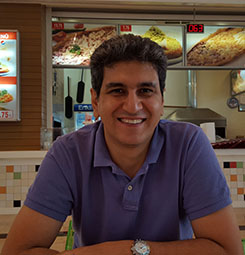
Dr. Farhad Gharagheizi is an expert in the chemical structure-based prediction of thermo-physical properties of pure organic compounds, ionic liquids, and polymers. He has published more than 130 papers in peer-reviewed journals. He has served as an editor in Journal of Thermal Analysis and Calorimetry since 2012. He is studying various techniques to modify the asphalt properties.
Current Ph.D. Students
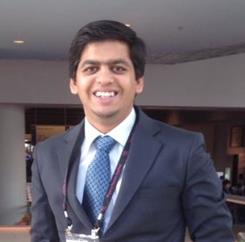
Mr. Rutvik Godbole is a 3rd year Ph.D. student whose main dissertation topic is to achieve a fundamental understanding of the transport of mixed solvent systems, especially water/alcohol systems relevant to biofuels, through amphiphilic copolymer membranes. Through combinatorial screening experiments, Rutvik is developing both experimental protocols and a theoretical framework to predict separation characteristics of polymeric membranes from thermodynamic fundamentals. Rutvik's experiments and mathematical modeling efforts involve both pervaporation membranes and a new process called gel absorption. Rutvik is the president of the student chapter of the Society of Plastics Engineers at Texas Tech in 2014-15.
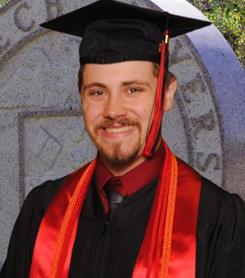
Mr. Michael Sees is a 1st year Ph.D. student who earned his B.S. in Chemical Engineering at Texas Tech in spring of 2014. Michael's research interests include continuous flow processes for production and recovery of bioethanol, and synthesis of novel microencapsulated PCMs.
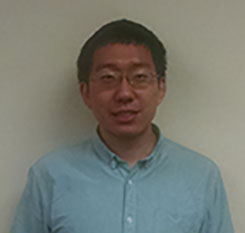
Mr. Xiaofei Zhao is a Ph.D. candidate who is studying supercooling effects and mechanical behavior of microencapsulated phase change materials.
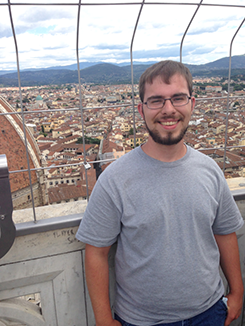
Michael Doerfert is a Junior in Chemical Engineering who has been working in Dr. Hedden's group on processes relating to biofuels production and separation. He is working with polymer networks and gels intended for alcohol-water separation processes with the goal of isolating materials that efficiently absorb alcohols out of aqueous mixtures. In spring of 2015, Michael presented his work involving a new gel absorption process for recovering biobutanol at the TTU Undergraduate Research Conference. In summer of 2015, his work focused more on pervaporation membranes, and Michael characterized swelling and diffusion properties of membrane polymers. Michael has also begun learning about bioreactor design and growing the cell cultures used to produce biofuel mixtures. A year of research on multiple projects has helped Michael understand how different aspects of chemical engineering research must come together to produce a useful separation process based on polymers.
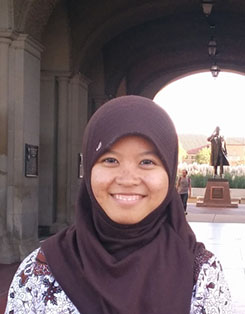
Asmaul (Nain) Indah is an international student from Indonesia who is currently a Junior in Chemical Engineering. She has been working in Dr. Hedden's Polymer Science and Engineering lab on a collaboration with the Texas Tech Multidisciplinary Research in Transportation (TechMRT). The main goal of the project is to develop novel material systems for road pavement for the state of Texas, where roads are prone to deformation caused by extreme temperature swings. To solve this problem, encapsulated phase change materials (PCMs) obtained from Microtek, Inc. (Dayton, OH) are added to the asphalt blend to reduce the variations in the pavement temperature to further extend the life-cycle of roadways. Nain's work involved evaluating properties of PCMs in asphalt mixtures, and her summer internship culminated in the preparation of the first pavement samples containing PCMs.
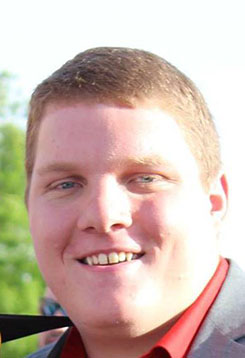
Jonathan Wilhelm is a junior in the Chemical Engineering program at Texas Tech and is from Amarillo, Texas. Jonathan is working under Dr. Ronald Hedden and Dr. Rajesh Khare on design and simulation of materials for pervaporation membranes. In Dr. Hedden’s lab, Jonathan assisted in the production of membranes which were used for pervaporation trials to selectively pass ethanol in order to purify biofuels. In Dr. Khare’s group, Jonathan ran molecular dynamics simulations for poly(dimethylsiloxane), a polymer used extensively in pervaporation membranes. Molecular dynamics simulations allow us to see how the polymer chains interact with water and ethanol on a molecular scale, which gives insight into the behavior of the membranes. Jonathan had the opportunity to work on this project from both the experimental and simulation sides, and to see how the two correlated to strengthen the overall project.

Sarah Crawford is a Junior in the Chemical Enginnering program who worked on a collaborative project with Dr. Hedden and Dr. Lacerda involving polymer gels for tissue engineering applications. We are attempting to bind collagen to a moldable, flexible polymer gel, then culture endothelium cells on top of the collagen layer. Our goal is to be able to grow tissues on a flexible, mechanically robust scaffold that will withstand the natural flex and stretch cycles of muscles such as heart valves. Sarah has been experimenting with different monomer solutions and methods of polymerization to find a polymer gel that is strong, flexible, and non-toxic. The group has primarily been working with poly(acrylic acid) gels, as their mechanical properties are good and their carboxylic acid groups are conducive to collagen binding. Moving forward, our focus will be on molding the gels into a scaffolding for the cells to grow into the proper shape and ultimately form synthetic tissue.
